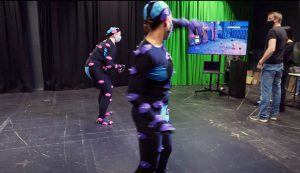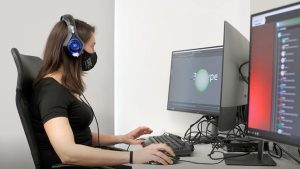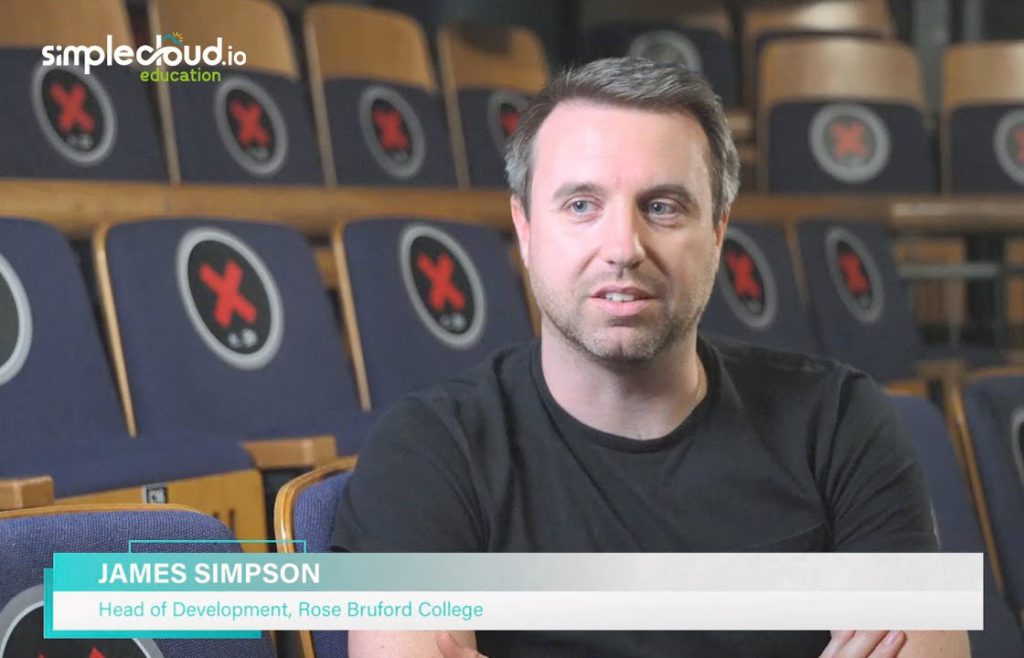In late autumn 2020, Rose Bruford College, one of the UK’s premiere Theatre and Performance institutions, launched the Centre for Digital Production, one of the first of its kind, which offers two innovative degree courses at the cutting edge of technology and industry practice: Virtual Theatre and Digital Experiences and Digital Content Design for Theatre and Live Events.
 With dedicated computer laboratories, a fully equipped studio space on campus with unique facilities where students can learn to operate media servers, cameras, projectors, control desks, motion capture and virtual reality equipment as well as green screen technologies, the college is now actively recruiting students with interests in gaming, video, photography and design who might not have considered a career or training at a traditional drama school.
With dedicated computer laboratories, a fully equipped studio space on campus with unique facilities where students can learn to operate media servers, cameras, projectors, control desks, motion capture and virtual reality equipment as well as green screen technologies, the college is now actively recruiting students with interests in gaming, video, photography and design who might not have considered a career or training at a traditional drama school.
THE CHALLENGES – What initial challenges did you face?
We need to build a computer infrastructure from the ground up which was capable of teaching anything from 10 to 100 students in the future. We found the additional pressure on our IT services and the need for data storage to be situated somewhere a challenge as we had limited space as well as the actual cost of the equipment and how we were going to scale it as the courses recruited each year. We were also very concerned about accessibility, understanding that not all the students had the same reasonable means. This meant the moment one single student didn´t have a powerful enough machine at home they would have a less democratic experience of education. So, we wanted this solution to make sure that everyone had fair access to the same equipment. All those things were answered by the discovery of SimpleCloud in one go.
 THE SOLUTION – SimpleCloud
THE SOLUTION – SimpleCloud
The first year of the new courses have been facilitated with a new partnership with SimpleCloud Education, a cloud-based system which enables students to work on state-of-the-art software programmes accessible from any piece of technology, from a phone to a basic PC laptop. This has enabled teaching to continue in the virtual realm, despite the restrictions imposed on students who are no longer able to be on campus due to the UK lockdown in force. The current students across the two courses have also all been lent individual Virtual Reality Headsets, which has enabled remote meetings and teaching. …… »Download here the complete Case Study (pdf)»
»Click on the image below to watch the video on YouTube»
